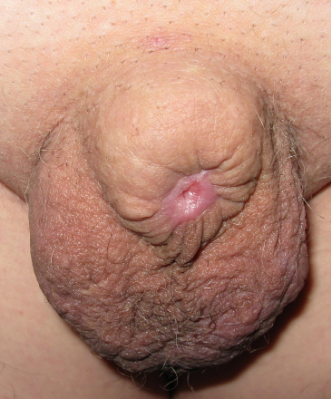What you need to know about Penectomy
Contents
Penectomy is a surgical procedure that involves removing all or part of the penis. It is mainly used as a treatment option for penile cancer. Penile cancer is a collection of malignant (cancerous) cells inside or on the tissue of the penis. This procedure is the most common and best-known method to treat penile cancer that has grown deep inside the penis. Removing all the cancer is the goal of the surgery.
In some cases, penectomy may also be performed in male-to-female sex reassignment surgery, especially for trans women who are planning a vaginoplasty. Very rarely, the procedure might be recommended after severe penile trauma.

What does the Procedure Involve?
Penectomy can involve different techniques: total or partial. The surgery may also include additional procedures.
- Partial penectomy removes only the end of your penis, while the shaft is left intact.
- Total penectomy involves the removal of the entire penis, including the roots that extend into the penis.
After total penectomy, your surgeon will also create a new opening for urine to drain from the perineum, which is the area between the anus and the scrotum. This procedure is called a perineal urethrostomy. Since the sphincter muscle (the “on and off” valve) in your urethra is left behind, urination can still be controlled but you will have to sit to urinate. With partial penectomy, you should still be able to urinate while standing up through the remaining penis.
For very advanced cancers, a further procedure known as emasculation may be done during as well. This procedure involves removing the penis along with the scrotum and the testicles. In certain cases, such as when cancer invades deep tissue, removing some of your lymph nodes may be necessary.
For trans-women, penectomy may not involve the complete removal of the penis. All or parts of the glans are usually left and reshaped as a clitoris. The skin of the penile shaft is usually inverted in order to form the vagina. In some cases, the scrotum is used to form the vaginal walls, while the skin of the penile shaft is used to form the labia majora.
Both total and partial penectomy can be carried out under either spinal or general anesthesia. With spinal anesthesia, you will remain awake but the area of the surgery will be totally numbed, while with general anesthesia, you will be asleep throughout the operation.
How Long Should I Stay at my Destination?
You will need a short stay in the hospital, usually around one or two nights, following a penectomy, whether total or partial. After you are discharged from the hospital, do not leave the area immediately. Plan to stay at least 7 to 10 more days after your surgery for follow-up checkups and initial recovery.
What’s the Recovery Time?
The recovery period may vary depending on why you underwent the procedure and your overall health. In general, you need to take things easy for at least 4 to 6 weeks following the surgery. Make sure to avoid any strenuous activity, including heavy lifting, gardening, and shopping. You should be able to go back to work within 4 weeks after your penectomy
What About Aftercare?
During your recovery period, you may need a friend or a family member to take care of the daily tasks. If you cannot find anyone who is available to help you full time, consider hiring a helper. Your surgeon will give you detailed post-operative instruction. It is important that you follow everything in the instruction to have a smooth and quick recovery.
Your doctor will prescribe painkillers. Make sure that you take the painkillers regularly as prescribed and not just when you feel pain. You will be given medications to prevent infections, constipation, and blood clots as well. You may also need to wear anti-embolism stockings, or anti-blood clot stockings, in order to protect the circulation of your leg.
You may need to attend regular checkups to ensure cancer has not come back. However, you should be able to have these checkups with your local doctor back at home. In some cases, you may need sexual support therapists and specialists, as well as a counselor, to help you adjust with life after surgery.
What’s the Success Rate?
Penectomy is a safe and effective procedure, particularly when performed by an experienced and skilled surgeon.
However, having a penectomy carries risks and complications. These complications include infection, bleeding, allergic reaction to anesthesia, chronic pain, blood clots, narrowing of the urethra, being unable to have sexual intercourse, and lymphedema (a blockage in your lymphatic system that results in swelling). If you experience uncontrolled pain, persistent bleeding from the wound, difficulty in passing urine, feeling as if you have a bad cold, high temperature, and shaking, as well as prolonged redness, swelling, or a foul-smelling discharge from the wound site, contact your healthcare team immediately.
Are there Alternatives to a Penectomy?
The alternative to penectomy depends on the reason you have the surgery. If you undergo the procedure to treat penile cancer, the alternatives depend on the stage of your cancer. The following are some of the treatment options:
- Circumcision – this procedure involves removing the foreskin and some nearby skin. It is done if the cancer is only on the foreskin.
- Wide excision – the tumor, along with a large amount of surrounding normal tissue, is removed.
- Mohs surgery – during this surgery, a layer of the skin that the tumor may have invaded is removed. Then this layer of the skin is examined. If it still has cancer cells in it, another layer of the skin is removed. This process is repeated until there is no cancer remains.
Further options include laser ablation or radiation therapy.
For transgender women, the alternative is orchiectomy, which is a procedure to remove one or more testicles.
What Should You Expect Before and After the Procedure
Before penectomy, you may have cancerous cells in your penis. After the surgery, cancer may be completely removed. However, life after surgery may cause psychological problems. After partial penectomy, it may still be possible for you to have satisfying intercourse. After total penectomy, full intercourse is impossible. However, with effort, you can still achieve pleasure. It is recommended to talk with a counselor to help with stress, depression, or questioning of your identity. You can also consider penis reconstruction if you want to. For transgender women, penectomy will bring you a step closer to a full transition.
For an in-depth analysis of a Penectomy Procedure, watch this short video.
To check prices or to book a Penectomy Procedure, in Thailand or anywhere else in the world, head on over to MyMediTravel now!

